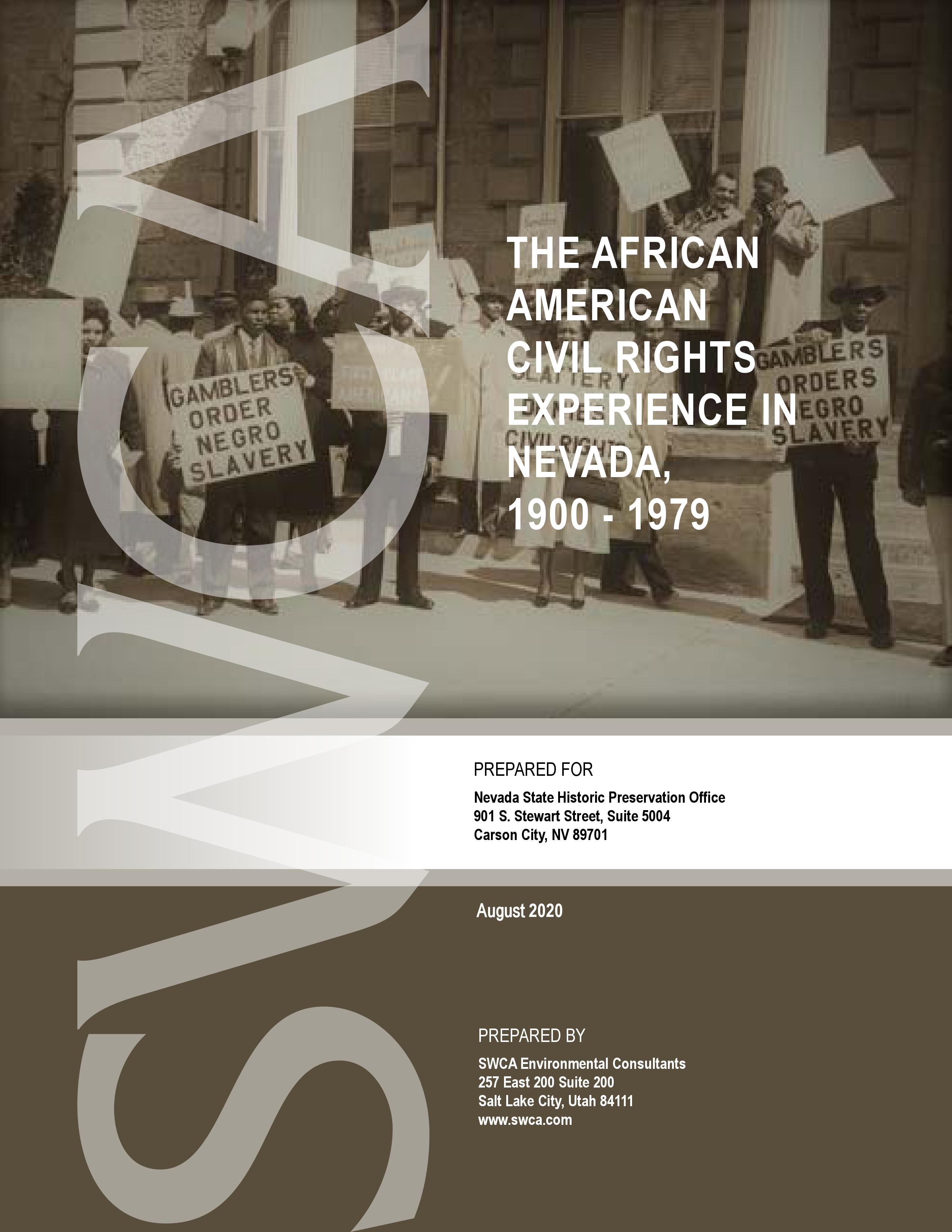African American Civil Rights Experience in Nevada - Historic Context
Click on image
African Americans have made significant contributions to Nevada’s history since the state’s foundations. Ranchers like Ben Palmer of Carson Valley became some of the state’s first citizens. Virginia City boasted dozens of African Americans working across several industries in the community. Unfortunately, where African American families found opportunity in early Nevada, they found segregation and discrimination in the twentieth century.
With mining revivals, the legalization of gambling in 1931, and the rise of well-paying defense industry jobs in communities like Hawthorne and Basic (now Henderson) in the 1940s, black families moved to Nevada by the thousands. However, the economic opportunities did not lead to equality. Housing through most of the twentieth century was strictly segregated, with most communities of size in Nevada developing specific enclaves for African American families. Distinct African American communities developed in Las Vegas’ “Westside,” several blocks west of Reno’s downtown around the original Bethel AME Church, outside Hawthorne in the government-built community of Babbitt, and a sizable enclave in McGill, among others.
Like elsewhere in the country, employers typically limited what jobs were available to black workers, public officials limited access to essential city services like water, sewage, and fire protection, and businesses often barred black patrons altogether. Even internationally-renowned entertainers like Nat King Cole, Pearl Bailey, and Sammy Davis, Jr., were not permitted to stay at the same hotels at which they performed in Las Vegas. Demonstrations and civil rights work throughout the state put increasing pressure on state and local government officials and private businesses to end discrimination.
In 1955, the Moulin Rouge Hotel & Casino in Las Vegas opened as the first integrated business of its kind in Nevada, and the site where Las Vegas casino owners agreed informally to integrate their establishments in what is known as the Moulin Rouge Agreement. In 1961, protestors demonstrated on the lawn of the Nevada State Capitol, pressuring the state legislature to end legal discrimination. A 1971 federal consent decree required an end to employment discrimination at Las Vegas venues, although enforcement proved lax.
The struggle of African Americans to achieve equal rights in Nevada is an integral part of the state’s history, and is woven into the fabric of the state’s communities. This project seeks to identify the places most important to Nevada’s civil rights story and encourage their preservation. Sadly, many of the places associated with this important aspect of state history have been lost. The Moulin Rouge Hotel was listed in the National Register of Historic Places in 1993, but burned several times in the 2000s and was completely demolished in 2018. Most of Nevada’s entries in the “Green Book,” a guide for African American travelers to help find friendly accommodations during the segregation period, have been demolished except for Harrison’s Guest House in Las Vegas, listed in the National Register in 2016. This grant-funded project completed a report about surviving sites related to the state’s African American civil rights history with a goal to help encourage the preservation of those significant places in Nevada's history.
This project received federal financial assistance for identification and protection of historic properties. Under Title VI of the Civil Rights Act of 1964, Section 504 of the Rehabilitation Act of 1973, and the Age Discrimination Act of 1975, as amended, the U.S. Department of the Interior prohibits discrimination on the basis of race, color, national origin, disability, or age in its federally assisted programs. If you believe you have been discriminated against in any program, activity, or facility as described above, or if you desire further information, please write to: Office of Equal Opportunity National Park Service 1849 C Street, N.W. Washington, D.C. 20240

